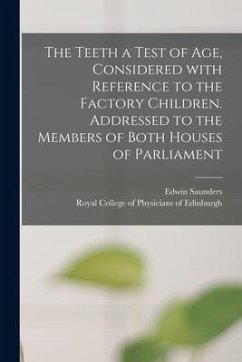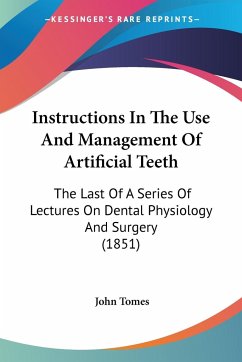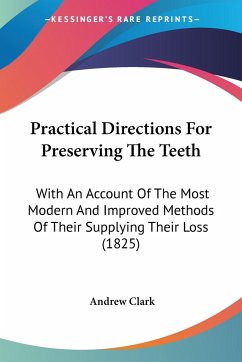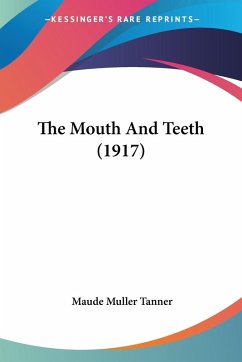
The Teeth Physiologically Considered
Their Development, Disease, Preservation, And Replacement (1843)

PAYBACK Punkte
10 °P sammeln!
The Teeth Physiologically Considered: Their Development, Disease, Preservation, And Replacement is a book written by Samuel Ghrimes in 1843. The book provides a comprehensive overview of the anatomy and physiology of teeth, including their development, diseases, preservation, and replacement. Ghrimes explores the various stages of tooth development, from the formation of the dental papilla to the eruption of the tooth. He also discusses the different types of dental diseases, such as caries and periodontitis, and provides advice on how to prevent and treat them. Additionally, the book offers i...
The Teeth Physiologically Considered: Their Development, Disease, Preservation, And Replacement is a book written by Samuel Ghrimes in 1843. The book provides a comprehensive overview of the anatomy and physiology of teeth, including their development, diseases, preservation, and replacement. Ghrimes explores the various stages of tooth development, from the formation of the dental papilla to the eruption of the tooth. He also discusses the different types of dental diseases, such as caries and periodontitis, and provides advice on how to prevent and treat them. Additionally, the book offers insights into the preservation of teeth through proper oral hygiene and diet. Ghrimes also delves into the topic of tooth replacement, discussing the various methods available, including dentures and implants. Overall, The Teeth Physiologically Considered is a valuable resource for anyone interested in dental health and the maintenance of healthy teeth.This scarce antiquarian book is a facsimile reprint of the old original and may contain some imperfections such as library marks and notations. Because we believe this work is culturally important, we have made it available as part of our commitment for protecting, preserving, and promoting the world's literature in affordable, high quality, modern editions, that are true to their original work.












